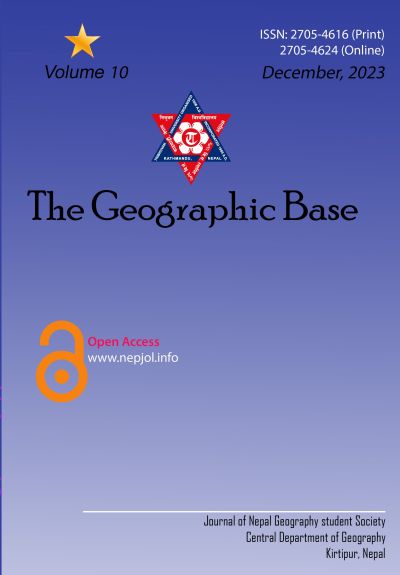Impacts of Foreign Employment on Social Cohesion: Insights from a Rural Village of Eastern Nepal
DOI:
https://doi.org/10.3126/tgb.v10i01.71832Keywords:
Foreign employment, labour migration, migrant household, social cohesionAbstract
Foreign employment has brought significant economic benefits and changes on the socio-economic situation of migrant households in Nepal. However, studies regarding the impact of foreign employment on social cohesion are limited. Hence, this study focuses on the impact of social cohesions in households and community levels taking the case of a large rural village from eastern Nepal. The study is based on qualitative research methodology applying three different but interconnected levels (individual, community and institution) in social cohesion perspectives. The study has found that household split (Anshabanda) is taking place much earlier in migrated families. The trend and volume of foreign employment-induced divorce cases among migrant couples are increasing rapidly compared to non-migrant households. Traditional cultures and practices are disappearing due to the absence of a large number of youths in the village. The study concludes that people’s motivation, perceptions, norms and values have changed over the time at both individual and community levels towards local cultures, borrowing behaviours and some other socio-cultural activities and performance, especially among migrant households and communities.
Downloads
Downloads
Published
How to Cite
Issue
Section
License
© Nepal Geography Student Society




